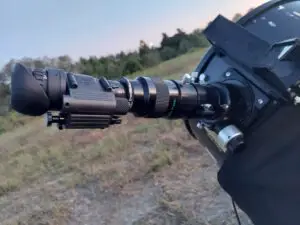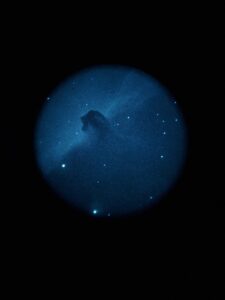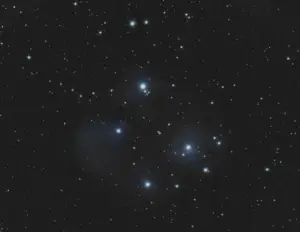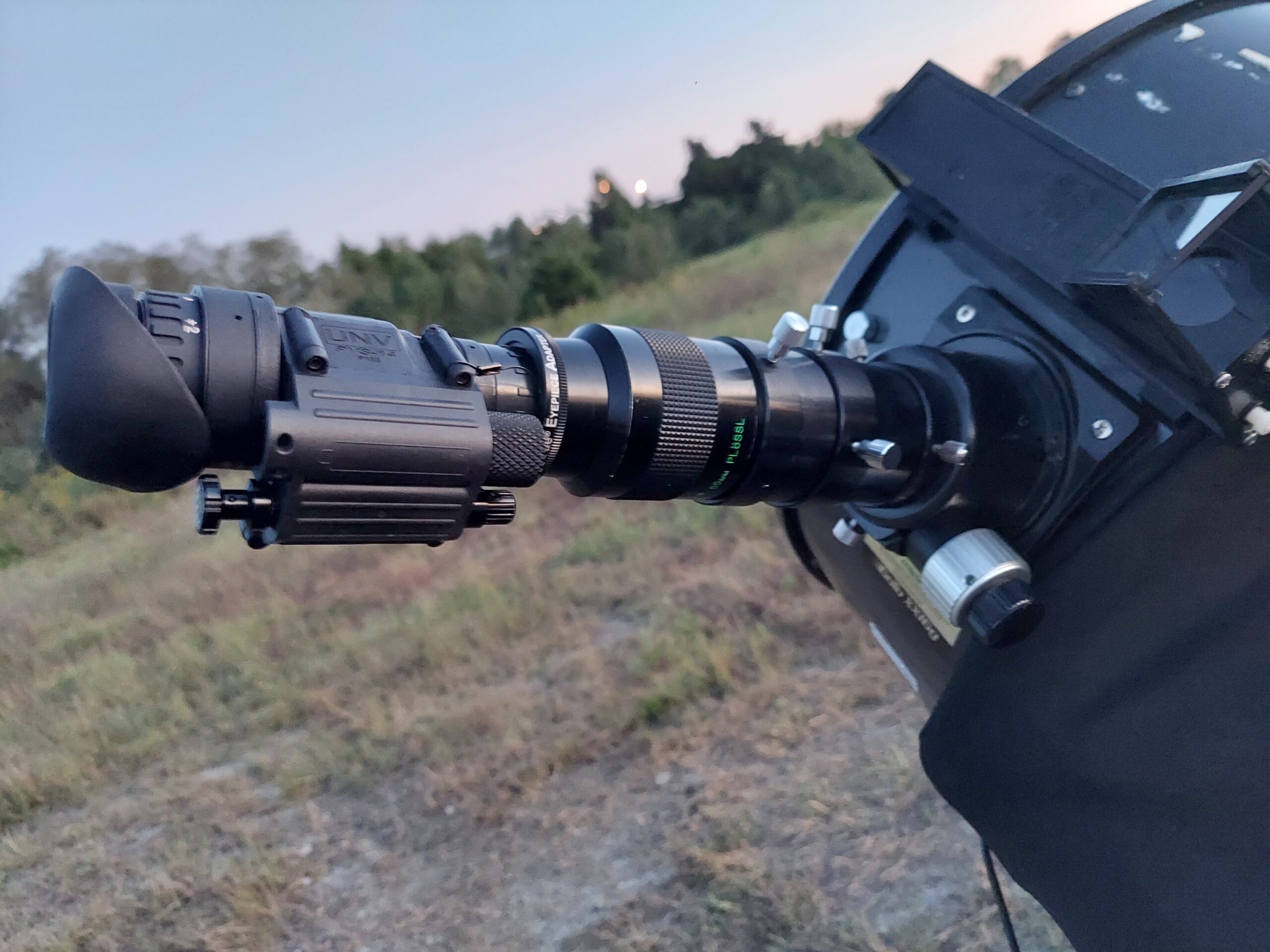Storing your telescope away from dirt, dust and moisture will extend the useful life of your telescope. There are great ways to store a telescope outside to make it easier to use it more frequently.
You can store a telescope outside in a weatherproof outdoor structure like an observatory, unheated garage or shed. Choose a location that will protect your telescope from moisture, dirt and insects. Secure your storage location to protect your investment in equipment.
Keeping your telescope mostly dry and free from dust will protect the coatings on your mirrors and lenses. They have coatings that can be damaged by environment.
Mirrors can be cleaned, and you can read our mirror cleaning method in this post, but it is still best practice to keep your scope as clean as possible.
When choosing a storage location for your telescope, consider the following things:
Temperature
It may surprise you to learn that you don’t need to worry about even radical temperature changes affecting your gear as long as you have it nicely tucked away in your cases.
Your telescope is totally fine being outside in the cold and hot weather. They are designed to be used outside and are very hardy to temperature changes.
Many people use their telescopes all night under many weather conditions with no problems. Usually it’s you who gets too cold and goes inside before the scope has any trouble.
I have spoken to High Point concerning storing my telescope in my car and they confirmed that dust and moisture are concerning, but temperature is not a worry.
I’ve actually been storing my equipment in my school bus! I keep all the equipment in its own cases and I check the mirror often and have seen no problems.
One thing to consider is to keep your telescope away from direct sunlight. While unlikely it is possible for your scope to catch fire if the sunlight enters the optical tube.
A heated garage is fine too,but you’ll still have to spend time waiting for your primary mirror to come to ambient temperature before observing.
Keep ventilation in mind as well. Make sure there is some ventilation. If your wires and cords get too hot,there is a chance they could catch fire.
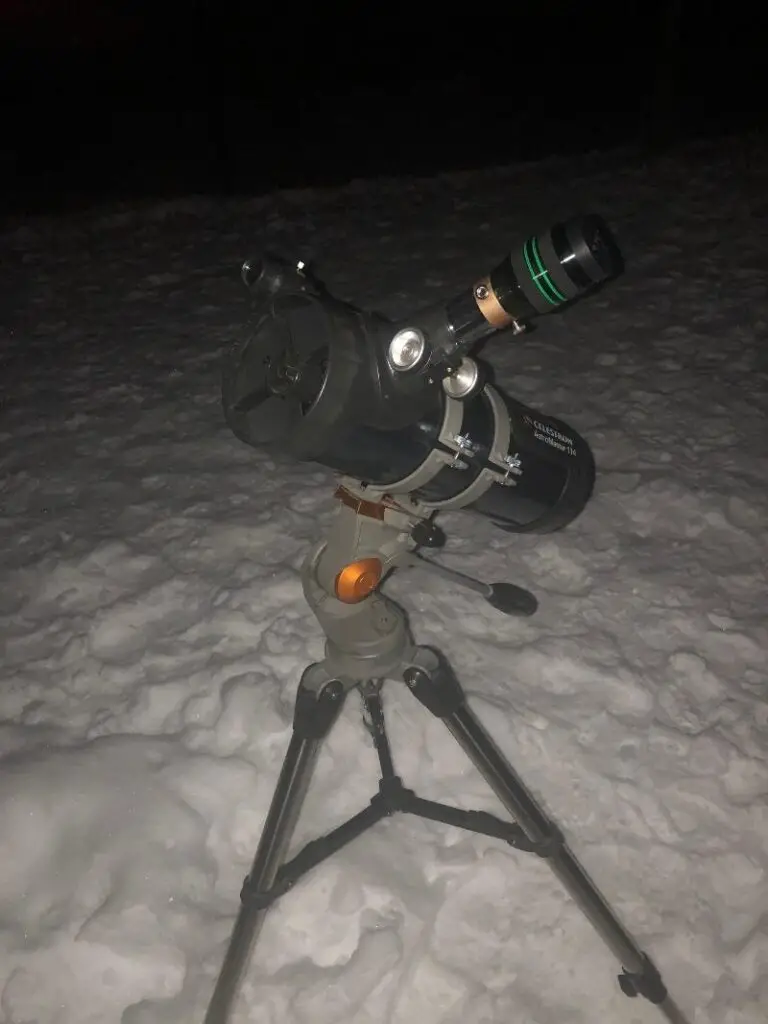
Setup time
Keeping your telescope outside can drastically reduce your setup and tear down time. This can help you spend more time at the eyepiece and that is the goal!
The ideal location to store a telescope is a garage. Wheeled platforms make it easy to store the telescope completely assembled and simply roll it out. This can also maintain collumation, further decreasing your set up time.
I have a large Dobsonian truss tube, and my 16 inch dob takes about 30 minutes or so to set up. If I had wheels on the base and kept it in an unheated garage,I could just roll it out and observe.
Before I got my bus, I would have to carry the heavy parts up and down a flight of stairs before and after every session. It made me use my scope less.
Acclimation
Acclimation is the term for getting your telescope to the same temperature as the outdoor air.
Storing your telescope outside eliminates your acclimation time before and after observing! This keeps your telescope from collecting much dew.
Another way to get more time at the eyepiece.
The reason acclimation is so important is dew control. Dew is water droplets that cover any glass or metal surfaces on your telescope and make it difficult or impossible to use.
You can use active dew control, dew heaters and dew shields to cut down on dew, but in many conditions a well acclimated scope will not require these things.
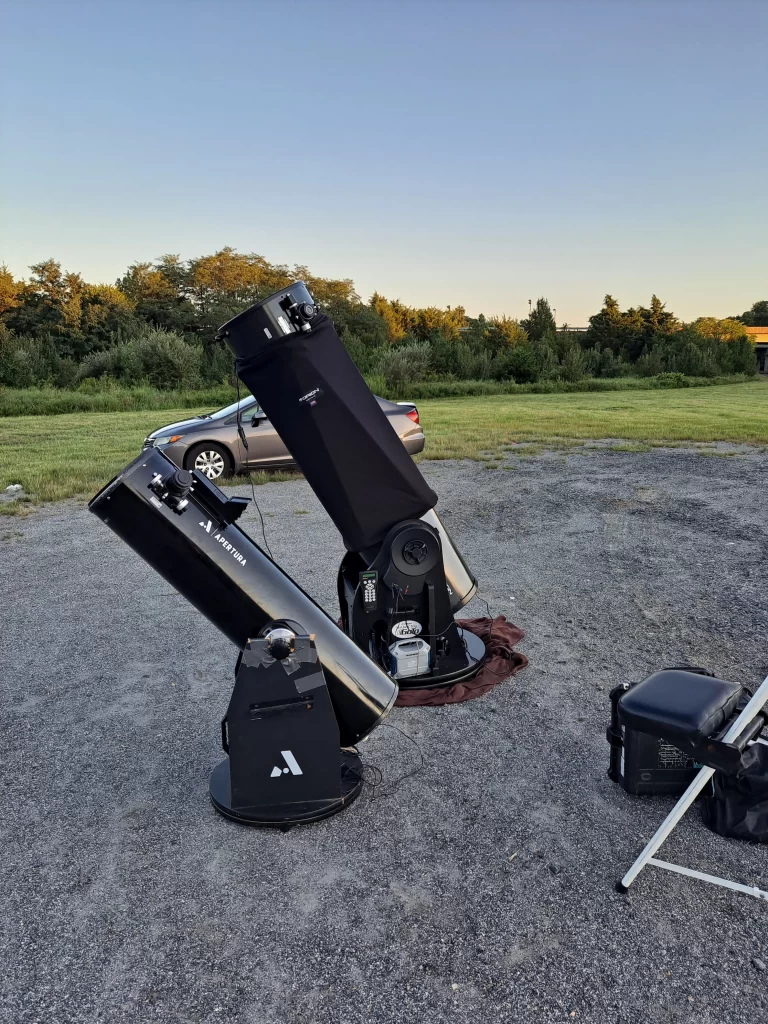
Security
Be sure to secure your storage location with a lock, motion light and even camera if you have the resources. Be sure to have clear detailed photographs of your gear for insurance claims.
You may feel like this is overkill and unnecessary, I would like to remind you that it is possible that your gear may walk off.
I recently messaged with someone who had thousands of dollars worth of astronomy equipment stolen from a storage facility which had no security cameras.
This was incredibly discouraging for the astronomer and a huge financial blow.
Consider securing your telescope with a bike lock at minimum, you can get solar powered LED motion lights very affordably and I find they give me a lot of peace of mind. The linked light has a remote so you can turn it off before you head out to get your gear.
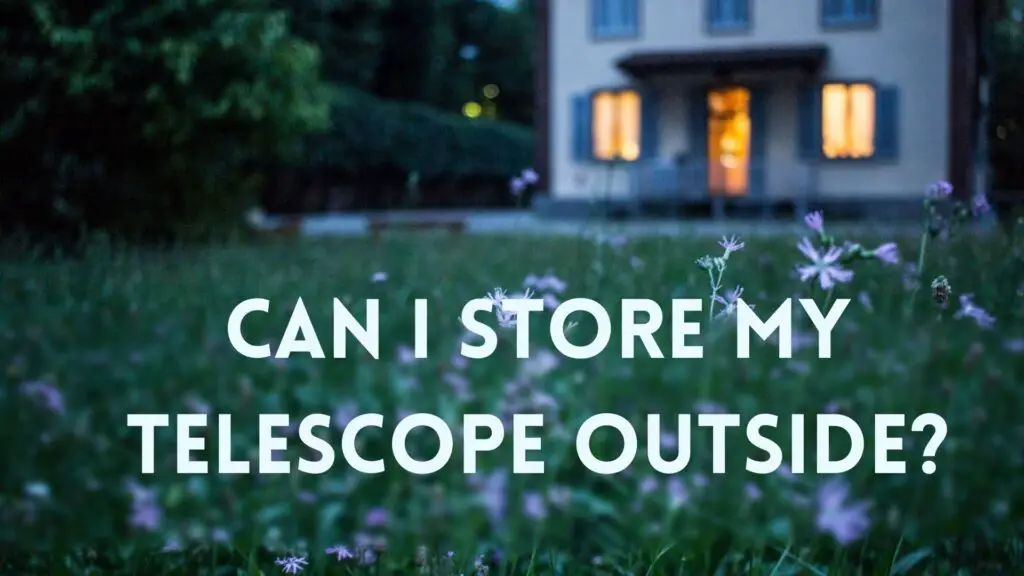
Should I store my telescope outside?
For some people storing your telescope outside will give them more time at the eyepiece, but if you do not have a dedicated observatory or other weatherproof shelter, indoors is your best option.
Keeping your telescope indoors will keep it cleaner and dryer than many other options. It is also your most secure option.
If you are storing your telescope indoors, just be sure to check for dew when you bring in the scope.
Consider laying the ota on its side in storage as well to cut down on dust that may settle on it. Cap and case when everything including the interior of the case is dry.
One trick I’ve learned is to cap everything outside to prevent additional condensation on the glass.
As soon as you notice the outside of the equipment starting to dry, remove the caps and uncase. You must allow the glass surfaces to dry thoroughly to prevent the growth of mold and fungus.
Is it OK to store a telescope in a shed?
So if you have a shed that is relatively weather-proof and secure it is a good place to store your telescope. Be sure that the shed will keep your telescope dry and relatively dust free and that you can easily pack your scope in and out of the shed. Be sure to keep it stored in its cases and away from direct sunlight.
An insulated shed may be better than an uninsulated shed as it will keep the scope cleaner. Temperature fluctuations do not damage your gear, but dirt and moisture can shorten its lifespan.

